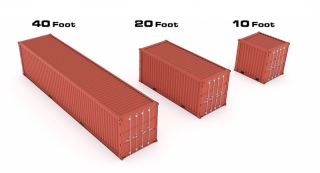
Incoterms
Incoterms stand for international commercial terms, which is a set rules codifying the interpretation of the trade terms used in contract of sale. These standard trade terms define the rights and obligations of buyers and sellers in an international transaction.
For a complete description of all obligations and risks defined by a specific term, please refer to INCOTERMS 2010 as published by the International Chamber of Commerce.
| EXW | Ex Works (named place) | The seller is responsible to make the goods available to the buyer at the seller’s own premises. The buyer bears all costs and risk in delivering the goods from the seller’s premise to the named place of destination. |
| FCA | Free Carrier (named place) | The seller has to fulfill the obligations to deliver the goods and clear them for export to the carrier named place where the risk of loss and damage is also transferred from seller to buyer. |
| FAS | Free Alongside Ship (named port of shipment) |
The seller has to fulfill the obligations to deliver the goods alongside the vessel on the quay at the named port of shipment, where the buyer bears all costs and risk from that time. |
| FOB | Free On Board (named port of shipment) | The seller has to fulfill the obligations to deliver the goods on board the vessel at the named port of shipment and clear the goods for export. The buyer bears all costs and risks when the goods are passed over the ship’s rail. |
| CFR | Cost and Freight (named port of destination) | The seller has to pay for the costs and freight necessary to deliver the goods to the named port of destination. But the buyer bears the risk of loss and damage when the goods are passed over the ship’s rail in the port of shipment. Insurance and import clearance is the buyer’s responsibility. |
| CIF | Cost, Insurance and Freight (named port of destination) |
The seller has to pay for the costs and freight necessary to deliver the goods to the named port of destination. The seller has to procure transport insurance against the risk of loss or damage to the goods. The seller must contract with the insurer and pay the insurance premium. The buyer bears the risk of loss and damage when the goods are passed over the ship’s rail in the port of shipmen, and pay for the import clearance. |
| CPT | Carriage Paid To (named place of destination) | The seller has to fulfill the obligations to pay for freight to deliver the goods to the named place of destination and clear them for import. The risk of loss or damage to the goods and any cost increases is transferred from the seller to the buyer when the goods are delivered to the custody of the final carrier, but not at the ship’s rail. The buyer pays for import clearance. |
| CIP | Carriage and Insurance Paid To (named place of destination) | The seller has to fulfill the obligations to pay for freight to deliver the goods to the named place of destination and clear them for import. The risk of loss or damage to the goods and any cost increases is transferred from the seller to the buyer when the goods are delivered to the custody of the final carrier, but not at the ship’s rail.The seller has to procure transport insurance against the risk of loss or damage to the goods during the carriage. The seller contracts with the insurer and pays the insurance premium. |
| DAF | Delivered At Frontier (named place) | The seller has to fulfill the obligations to deliver the goods to the named place of frontier before the customs border of the adjoining country. The term is primarily used when goods are carried by rail or truck. The seller bears the full cost and risk in delivering the goods up to the named place and the buyer has to arrange and pay for the goods to clear customs. |
| DES | Delivered Ex Ship (named port of destination) | The seller has to fulfill the obligations to make the goods available to the buyer on board the ship at the named port of destination The seller bears the full cost and risk involved in delivering the goods there while the buyer bears the cost of unloading the goods and any customs duties. |
| DEQ | Delivered Ex Quay (named port of destination) | The seller has to fulfill the obligations to make the goods available to the buyer on the quay at the named port of destination and clear for import. The seller bears the full cost and risks in delivering the goods to that point including unloading. It can be stated with “ex quay duty paid” in which the seller has to pay the duty; Or “ex quay duty on buyer’s account” in which the duty also is paid by the seller, but the buyer must reimburse the seller. |
| DDU | Delivered Duty Unpaid (named place of destination) | The seller has to fulfill the obligations and bear all costs and risk in delivering the goods to the named place of destination. The seller has no obligation for import clearance. |
| DDP | Delivered Duty Paid (named place of destination) | The seller has to fulfill the obligations in delivering the goods to the named place of destination The seller bears all risks and costs, including import duties, taxes, delivery charges and clears for import. |
| DAT | Delivered At Terminal (named terminal at port or place of destination) | The Seller delivers when the goods, once unloaded from the arriving means of transport, are placed at the Buyer’s disposal at a named terminal at the named port or place of destination. “Terminal” includes any place, whether covered or not, such as a quay, warehouse, container yard or road, rail or air cargo terminal. The Seller bears all risks involved in bringing the goods to and unloading them at the terminal at the named port or place of destination. |
| DAP | Delivered At Place (named place of destination) | The Seller delivers when the goods are placed at the Buyer’s disposal on the arriving means of transport ready for unloading at the named place of destination. The Seller bears all risks involved in bringing the goods to the named place. |




